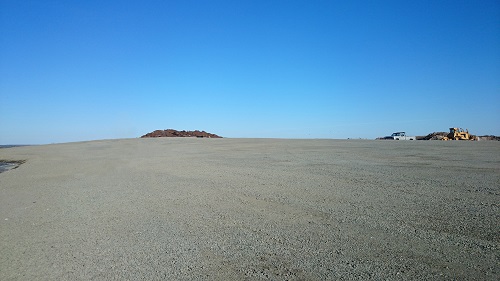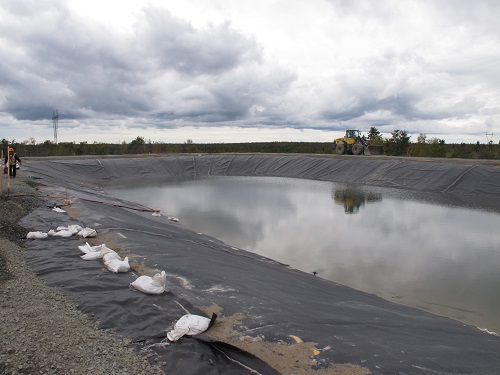The Compost Facility
The Compost Facility is an outdoor space located at the Solid Waste Facility where compostable organic material is delivered and converted into rich compost. It is blended with woodchips, yard waste and shredded cardboard then placed into long piles called "windrows". Once the material is finished converting into compost, it is useful at the Solid Waste Facility for a variety of things. If the compost passes CCME testing, it may be made available for sale.
Composting Process
The windrows at the compost facility must be regularly maintained as it uses oxygen and heat-activated bacteria to decompose the organic material. The upkeeps allows for a suitable environment that allows microbial activities to transform the material into compost. An appropriate mixture of carbon and nitrogen require monitoring of moisture, oxygen levels and porosity. Temperature is regularly monitored due to a large amount of heat generated which can reach above 60°C for a few days during the early phase of decomposition. Once the compost begins to cool down, the pile is screened and set aside to continue the curing process for the next 10-12 months.
Green Compost Cart Collection
Green cart for the win! Separating your food scraps into your green cart can make a big difference. When food and yard waste is buried in the landfill it doesn't break down or turn into soil.
The City of Yellowknife implemented a two-cart waste system with a biweekly collection schedule for single family dwellings in residential areas throughout Yellowknife as part of a Curbside Cart Program.
Utilizing green carts for organics is a fantastic way to limit the amount of compostable material going directly into the landfill, thus extending the life of the landfill and helping to reduce greenhouse gas emissions. Compostable organic material in a landfill will breakdown and create methane without the benefit of resulting in mature and stable compost.
Only materials that can fully undergo the composting process are accepted in the Curbside Cart Program.
Why is composting important in Yellowknife? |
| Composting reduces environmental impacts, reduces carbon footprints and extends the lifespan of the Yellowknife landfill! For more information on the benefits of composting in Yellowknife, please visit our Composting page. |
What can be Composted? |
Acceptable materials that can fully undergo the composting process and can be added to your green compost cart for collection:
If the item you are searching for is not included in this list, please email sustainability@yellowknife.ca with a description of the item for further instructions. Please note: Only BPI Institute certified compostable plastics will be accepted by the compost facility. Certified compostable materials will have the following logo (pictured below) directly on the plastic. If there is no logo, the item is not certified and belongs in the garbage stream (e.g. #7 PLA plastics). |
What cannot be Composted? |
Unacceptable materials that cannot undergo the composting process and cannot be added to your green compost cart for collection:
If the item you are searching for is not included in this list, please email sustainability@yellowknife.ca with a description of the item for further instructions. Please note: Only BPI Institute certified compostable plastics will be accepted by the compost facility. Certified compostable materials will have the following logo (pictured below) directly on the plastic. If there is no logo, the item is not certified and belongs in the garbage stream (e.g. #7 PLA plastics). |
Green Compost Cart Tips |
| Only organics and certified compostable materials are accepted in the green compost carts. Separating your food scraps into your green cart can make a big difference. When food and yard waste is buried in the landfill, it doesn't break down or turn into compost/soil. Follow these tips for separating food scraps and using your green compost cart successfully:
|
Please note: Only BPI Institute certified compostable plastics will be accepted by the compost facility. Certified compostable materials will have the following logo (pictured below) directly on the plastic. If there is no logo, the item is not certified and belongs in the garbage stream (e.g. #7 PLA plastics).
If you're interested in visiting the compost facility, please contact sustainability@yellowknife.ca.


Collection Schedule


